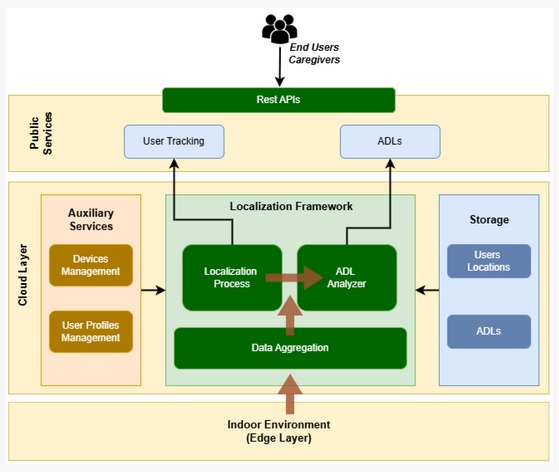A new paper presents a framework for indoor localisation and the monitoring of Activities of Daily Living (ADLs) using Bluetooth Low Energy (BLE) signals and machine learning. It tackles the challenges of accuracy and adaptability in complex indoor environments by introducing a novel closed-loop system that recalibrates itself with live Received Signal Strength Indicator (RSSI) data. This allows the system to learn from a small set of samples, enrich them to cover wider distances, and maintain accuracy over time.

The approach achieves localisation errors as low as 0.5 to 0.8 metres, improving on previous methods by about 65 per cent. Once accurate positioning is achieved, the framework can identify ADLs such as cooking, sitting, or sleeping with an accuracy of 91 per cent, relying on patterns of movement and location. The architecture integrates three layers: an edge layer with beacons and devices, a cloud layer for processing and storage, and a public layer providing real-time services to caregivers or family members.
The work combines signal filtering, line-of-sight classification, distance estimation, beacon selection optimisation, and location estimation through advanced algorithms such as Random Forests, Gradient Boosting, and Bi-LSTMs. Evaluation in a controlled living environment confirmed reliable performance, with strong results across multiple test routes.

The authors highlight limitations, such as RSSI’s sensitivity to environmental conditions, hardware variability, and challenges in adapting to diverse residential layouts. They suggest future work in hybrid sensing methods, generative models for dataset expansion, and personalised ADL modelling.
The study demonstrates that a feedback-driven, machine learning-based RSSI system can offer scalable, accurate, and adaptable indoor localisation and ADL monitoring, supporting safer and more independent living environments, particularly for elderly people or those with disabilities